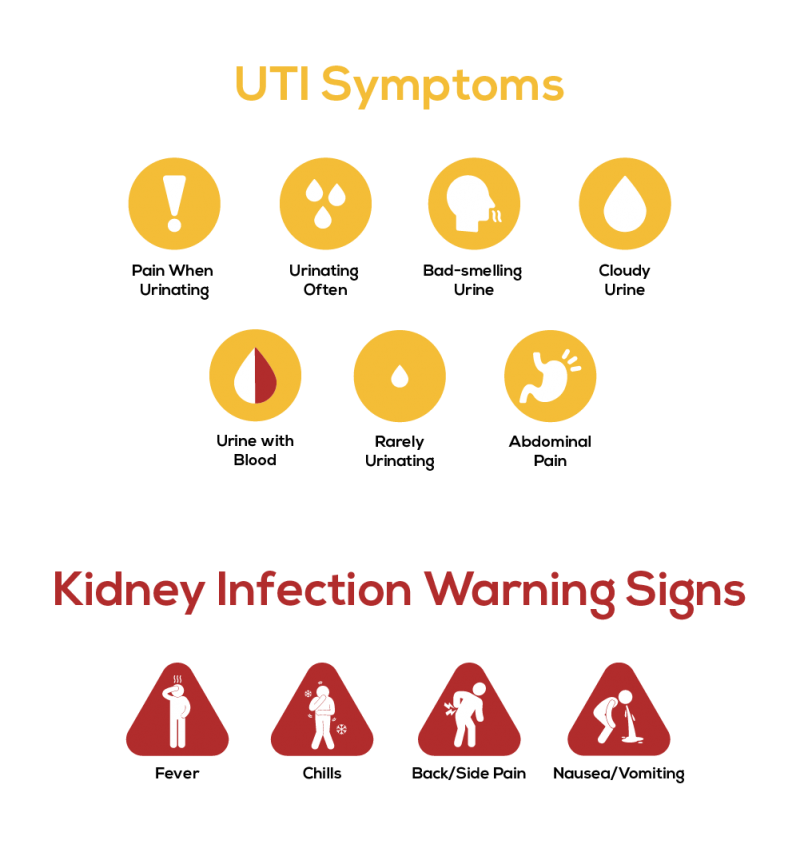Kidney Stones vs UTI: How to Identify and Deal With Each Problem Successfully
Kidney Stones vs UTI: How to Identify and Deal With Each Problem Successfully
Blog Article
Checking Out the Symptoms and Causes of Kidney Stones in Contrast to Urinary System System Infections: An In-depth Overview
The exploration of kidney rocks and urinary system tract infections (UTIs) exposes a complicated interplay of symptoms and underlying reasons that necessitate careful evaluation. What are the crucial distinctions in their signs and symptoms, and just how might these inform treatment strategies?
Summary of Kidney Stones
Kidney stones, additionally recognized as renal calculi, kind when specific materials in the pee crystallize and aggregate, leading to the advancement of difficult down payments within the kidneys. These stones can differ in size, varying from a grain of sand to a golf ball, and can be composed of various materials, one of the most typical being calcium oxalate, uric acid, struvite, and cystine. The development of kidney stones is influenced by a number of aspects, including dietary habits, liquid consumption, and hereditary tendency.
Signs of kidney stones might include severe pain in the back or side, blood in the urine, nausea, and constant peeing, especially as the stone relocates via the urinary tract. Medical diagnosis typically entails imaging research studies such as ultrasound or CT scans, alongside urinalysis to recognize the stone's make-up.
Treatment alternatives vary based on the dimension and kind of rock, in addition to the severity of signs and symptoms (Kidney Stones vs UTI). Small stones might pass normally with boosted liquid intake, while larger stones may need medical interventions such as lithotripsy or surgical elimination. Comprehending the pathophysiology and risk variables related to kidney rocks is necessary for effective prevention and management
Overview of Urinary System System Infections
Urinary tract infections (UTIs) are common microbial infections that affect any type of part of the urinary system, including the kidneys, ureters, bladder, and urethra. They mostly take place when germs, commonly from the intestinal system, enter the urinary system, leading to inflammation and infection.
The frequency of UTIs is significantly greater in females than guys, mainly due to anatomical differences, such as a much shorter urethra. Risk factors include sex, particular contraceptive techniques, urinary retention, and dehydration. The diagnosis of UTIs is generally validated via urine tests, which might disclose the existence of microorganisms, white blood cells, or red blood cells.

Signs And Symptoms of Kidney Stones
The discomfort related to kidney stones can manifest in numerous means, commonly leading individuals to look for clinical focus. Among the most usual signs is extreme pain, typically local in the lower back or side, which may radiate to the abdomen or groin. This pain, usually referred to as sharp or cramping, can take place all of a sudden and might rise and fall in strength.
Additionally, people may experience hematuria, or blood in the pee, which can vary from microscopic total up to visible discoloration. This signs and symptom might be come with by adjustments in urinary practices, such as increased regularity or seriousness, as well as pain throughout peeing. Nausea or vomiting and throwing up are also widespread, commonly arising from the body's reaction to extreme discomfort.
In some instances, individuals might experience high temperature and chills, especially if a second infection creates due to the blockage brought on by the stones. On the whole, the combination of severe pain, hematuria, modified urinary system patterns, and intestinal signs can provide considerable insight into the presence of kidney rocks, necessitating punctual medical evaluation and treatment. Recognizing these signs is critical for prompt diagnosis and reliable administration of the problem.
Signs of Urinary System Tract Infections
Infections within the urinary system system frequently present a variety of distinct signs that can substantially impact everyday life. One of the most common have a peek at these guys symptoms consist of a relentless impulse to urinate, commonly gone along with by a burning feeling during urination, known as dysuria. Individuals might also experience increased regularity of peeing, producing percentages of urine each time.
Various other noteworthy signs and symptoms include reeky or gloomy urine, which may suggest the presence of microorganisms or pus. In many cases, urine might show up pink or red because of the existence of blood, a problem called hematuria. Additionally, people may experience pelvic discomfort or pressure, which can further worsen the sensation of necessity.
Systemic signs might likewise manifest, such as high temperature, cools, and fatigue, especially if the infection has ascended to the kidneys. It is important to recognize these symptoms early, as untreated urinary system infections can cause extra serious complications. Kidney Stones vs UTI. Trigger medical interest is suggested when these signs and symptoms are observed, permitting appropriate analysis analysis and therapy to relieve pain and avoid additional health concerns
Root Causes Of Each Condition
Regularly, kidney rocks and urinary system tract infections emerge from distinctive yet occasionally overlapping reasons that can affect individuals in different ways. Kidney stones normally create as a result of metabolic factors, nutritional choices, and hereditary predispositions. Enhanced levels of calcium, oxalate, or uric acid in the urine can lead to stone development. Dehydration, not enough fluid intake, and high-sodium diet regimens can aggravate these problems, advertising formation within the urinary system tract.

Understanding these distinctive causes is vital for avoidance and treatment. Kidney Stones vs UTI. While way of life modifications might reduce the danger of kidney stones, ideal hygiene and timely treatment of urinary tract infections are necessary for decreasing their reoccurrence and linked problems
Final Thought
In recap, kidney stones and you can look here urinary tract infections present unique signs and underlying reasons. Kidney stones are characterized by severe discomfort and metabolic elements, while urinary system infections mostly involve microbial infections bring about urinary seriousness and pain. Both conditions can result in hematuria, their development systems differ dramatically. Recognizing visit these differences is crucial for effective medical diagnosis and therapy, ultimately enhancing patient end results for those impacted by either condition.
The exploration of kidney rocks and urinary tract infections (UTIs) reveals a complicated interaction of signs and underlying causes that call for cautious evaluation.Urinary system infections (UTIs) are typical bacterial infections that impact any component of the urinary system, including the kidneys, ureters, bladder, and urethra.Regularly, kidney stones and urinary tract infections arise from unique yet occasionally overlapping causes that can affect people in a different way.In recap, kidney rocks and urinary system system infections existing distinctive symptoms and underlying causes. Kidney rocks are characterized by extreme pain and metabolic aspects, while urinary tract infections mostly include bacterial infections leading to urinary system seriousness and discomfort.
Report this page